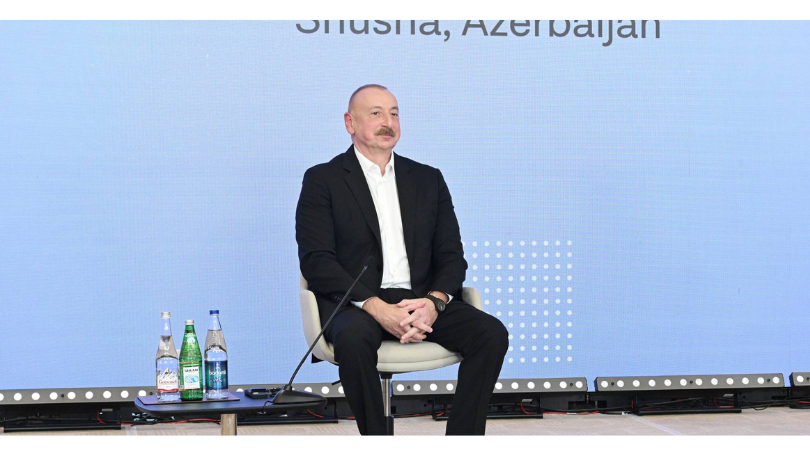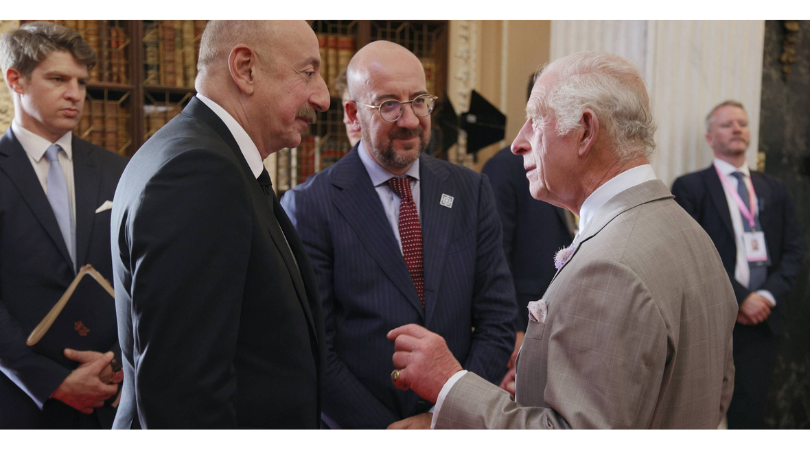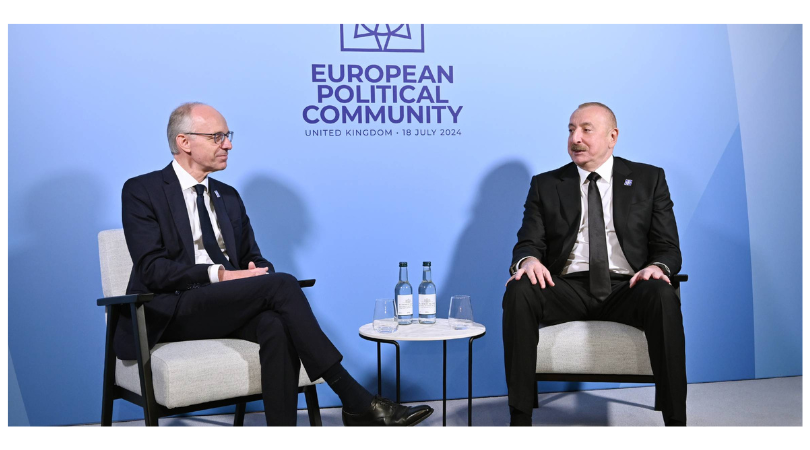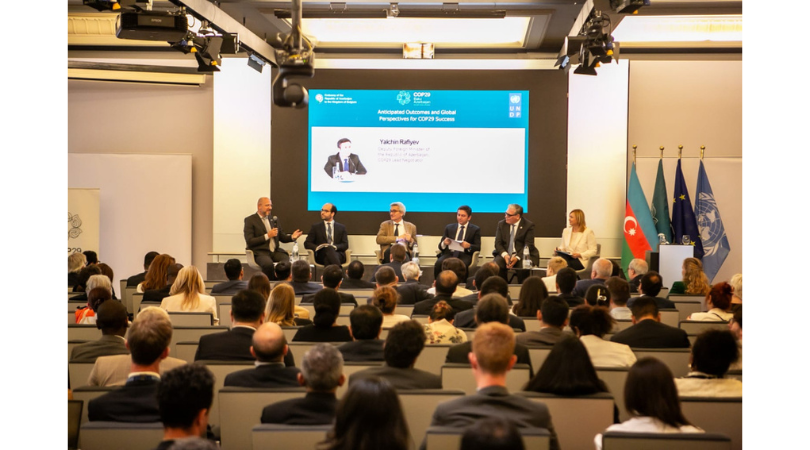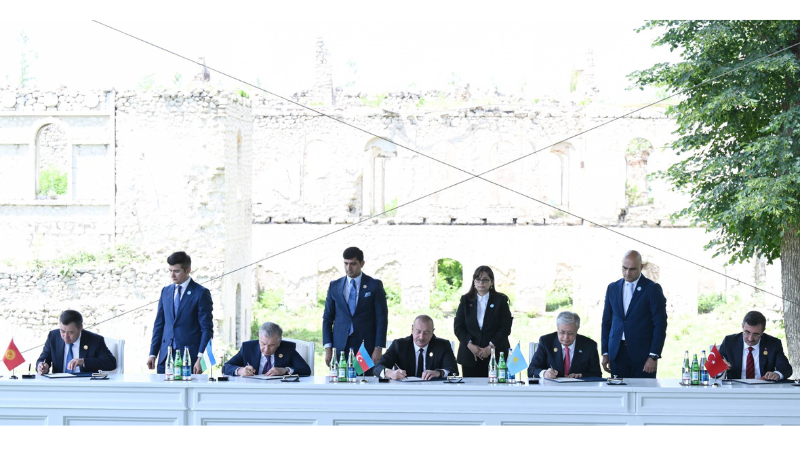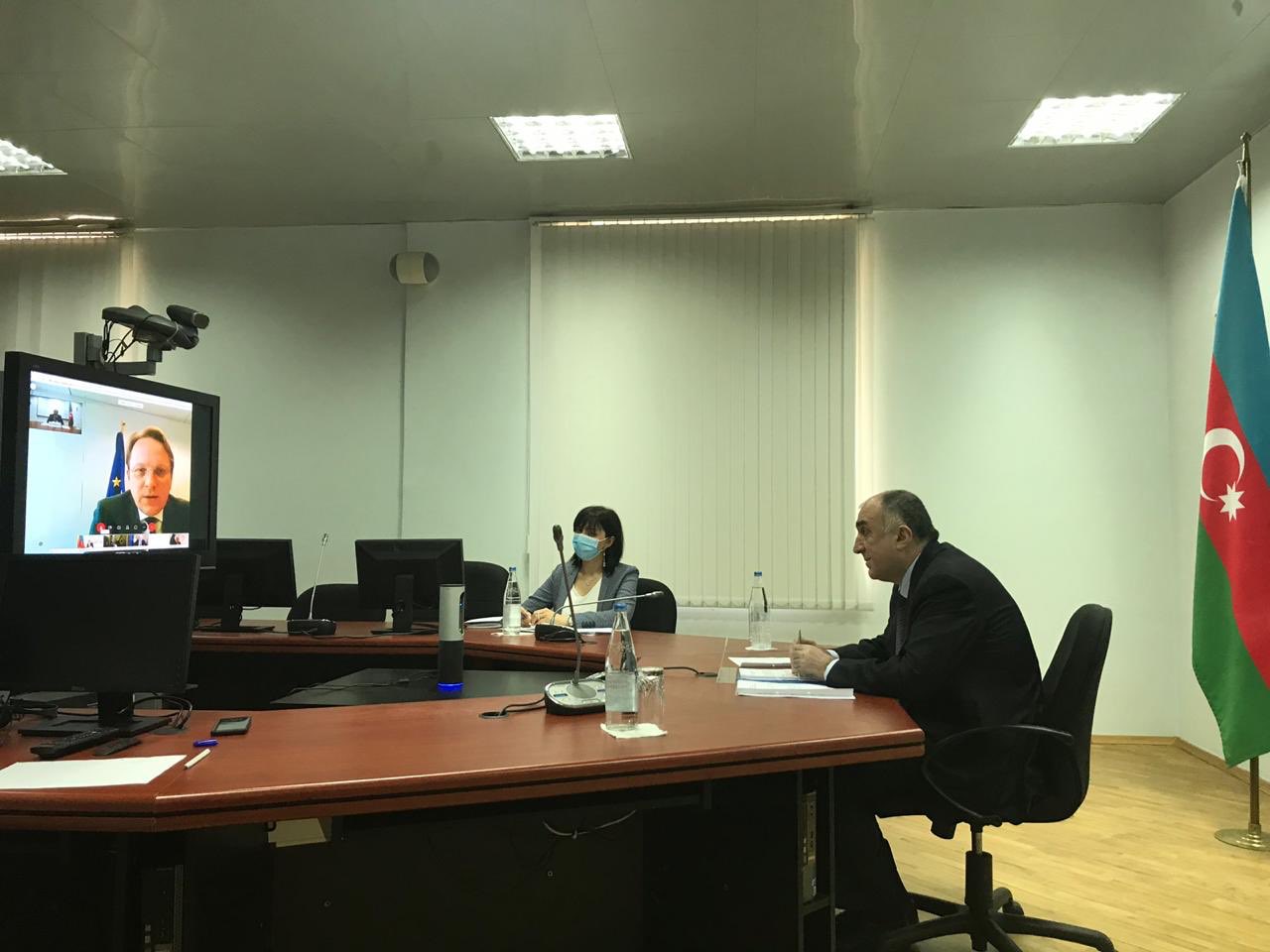Eastern Partnership deliverables beyond 2020. Speaking points by Minister of Foreign Affairs of the Republic of Azerbaijan Elmar Mammadyarov at the Eastern Partnership Foreign Ministers' videoconference meeting with the EU Commissioner Oliver Varhelyi
General remarks
➢ Future deliverables should be developed on the basis of the lessons learned from the previous set of objectives spanning 2017-2020. They need to be realistic, feasible and measurable. They should match with varying ambitions of individual partner countries in their relations with the EU. At the same time, the EU should tailor and revise its expectations to ever-changing needs and circumstances. Greater flexibility of the EU in this respect will play a critical role in maintaining the viability and relevance of EAP.
5 policy objectives
1. Resilient, sustainable and integrated economies;
➢ There is an urgent need to prepare for transitioning to the next normal and planning across multiple horizons. Comprehensive economic policy mix should be coupled by international support by measures to strengthen healthcare and institutions, facilitation of trade and investments with a focus on digitalization, connectivity and innovation.
➢ Actions aimed at reviving and internationalization of SMEs are a priority in scaling up economic development. We look forward to the involvement of European financial institutions in “SME Development Funds” established in partner countries and application of innovative financing methods which will support transition to “Green Economy”.
➢ For boosting trade, we expect the EU to work with Azerbaijan on increasing the number of entities authorized to export agricultural/food products to the EU. Food Safety Agency of Azerbaijan has embarked on an ambitious reform strategy aimed at strengthening Sanitary and Phytosanitary (SPS) measures in convergence with the EU standards.
➢ On energy connectivity, we need to build on the success of the Southern Gas Corridor. We are closely working with our colleagues in Western Balkans in order to extend the gas supply to the wider geographic region. SGC will be instrumental in delivering EU policy priorities in Western Balkans which seeks the diversification of supply sources and routes.
➢ On transport connectivity, EU’s support is critical to the promotion of the East-West and North-South trade corridors. We also invite the EU to support the efforts to build GUAM transport corridor that will provide an alternative route to Central Asia and beyond and the theOSCE project “Promoting green ports and connectivity in the Caspian Sea region”.
2. Accountable institutions, rule of law and security;
➢ Bringing transparency and accountability standards in public administration to the European standards is a key domestic policy priority and we are ready to further our cooperation in this regard.
➢ We will appreciate the EU’scontinued support to the justice sector reform, including through training judges.
➢ We appreciate the EU principled position with respect to international law and its application to the conflict settlement based on the principles enshrined in Helsinki Final Act, particularly, respect to the territorial integrity of states within their internationally recognized borders. We expect the EU to continue to promote peaceful settlement of unresolved conflicts, reinforce respect for international law in its policies and practices, inter alia, by opposing illegal practices aimed at consolidating the status quo via illegal resettlements and various infrastructural projects in the occupied territories and ongoing attempts to alter existing formats in an effort to derail political settlement of a conflict.
➢ The EU’s differentiation policy is crucial to keep all partners on board. We appreciate this; however, it should not entail an abuse or misinterpretation of international law principles as advocated by some EaP partner countries.
➢ Another serious danger to the entire region is the Soviet-era nuclear power plant, which lies on some of Earth’s most earthquake-prone terrain. We expect the EU to step up efforts to achieve closure and safe decommissioning of outdated nuclear power plants which have no room for improvement to meet international nuclear safety standards.
3. Environmental and climate resilience;
➢ It is important to reinvigorate regional and international efforts to tackle the issue of global emissions and to work towards a greener economy through concrete projects.
➢ Azerbaijan is interested in working closely with the EU to promote accession to and implementation of international agreements on water cooperation, including the 1992 Helsinki Convention by the upstream countries.
➢ Well-functioning and modern public health is a major component of national security. COVID-19 has been a stark reminder of the need to increase resilience in this field. Practical cooperation in public health, including training medical staff will bring a tangible deliverable to EAP.
4. Resilient digital transformation;
➢ Azerbaijan is currently working on a government strategy for digital transformation. We are closely collaborating with “Microsoft” to develop artificial intelligence, address potential cyber-security threats. The promotion of start-ups on people’s digital skills will help us to diversify away our economy from oil-sector. We are ready to work with the EU which will help the local SMEs to strengthen their links with the EU innovation ecosystems.
➢ Partner countries are developing a legal framework for harmonized roaming tariffs. This exercise should be complemented with the EU’s commitment to engage with EAP countries on reduced roaming tariffs. It will be one of the tangible deliverables for our citizens.
5. Resilient, fair and inclusive societies;
➢ Investing in human capital, particularly on youth, will be key to strengthening societal and economic resilience. We need to work out sustainable solutions in order to address disruptions in the education sector generated by COVID-19.
➢ Ensuring respect for rights of conflict-affected populations should cover targeted measures enforcing the right of forcibly expelled Azerbaijanis to return to their homelands. Fostering dialogue between Azerbaijani and Armenian communities of Nagorno-Karabakh region of Azerbaijan could serve as a decent confidence-building measure.
➢ We appreciate the positive feedback of the European Commission on the implementation of Visa and Readmission Agreements. Opening visa liberalization dialogue could be a solid milestone in our cooperation with the EU.
➢ Racial and religious discrimination spreads hatred and fuels violence across communities which unfortunately claim human lives. We need to work together to promote tolerance, diversity, and peaceful-coexistence and to counter all manifestations of violence, including violent separatism, extremism and xenophobia.

